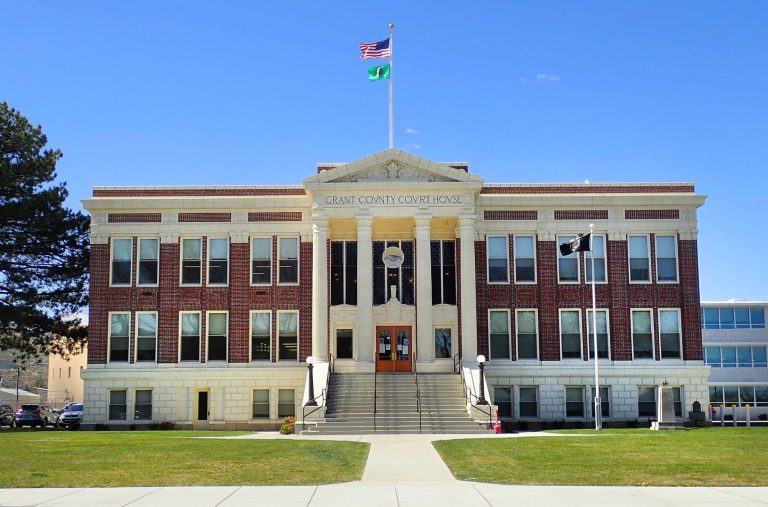History of Ephrata
Ephrata is the county seat of Grant County, in Central Washington. The community and its founding members had a significant impact on the development of the Columbia Basin.
Enjoyed by Native Americans digging camas roots, the Ephrata area did not see settlers until the early 1880s when the territorial legislature redistricted the region. The first residents of the area were stockmen that generally lived near today’s high school.

The area was given several names; “Tukta-hyos-pum” was the Native name, later called “Indian Graves” by the first white settlers. The spring between the two hills took on the name of different landowners, “Beezley Springs” being the longest lived.
The first official name, recorded by the Great Northern Railroad in 1892, was “Station 11,” an unglamorous name for the water stop near Beezley Springs. Local legend has it that a worker on the rail line found that the orchards and the landscape were similar to the Holy Land and christened the area “Ephrata”- Hebrew for “fruitful” and an older name for Bethlehem.
Ephrata was a convenient stop for the trains, and also for travelers and wagons moving from Walla Walla to the northern Okanogan region. As more settlers moved into Washington, the town was first platted in 1901 and then began to build schools, stores, newspapers, and the like.
In 1909 the town incorporated and was given the county seat for the newly created Grant County. Ephrata allegedly won the seat by intentionally intoxicating the representative from a rival community just before making competing presentations to the state legislature.
The town continued in quiet prosperity until the need for irrigation water prompted Ephrata residents in 1918 to push for a new dam on the Columbia River. The Grand Coulee Dam transformed the community into a government town from 1933 to 1941. The theme of government “industry” continued when the U.S. Army Air Corps built a large training base here in 1942. After the war in 1951, the Columbia Basin Project was created, delivering water from Grand Coulee Dam to over 600,000 acres of fertile, but otherwise dry, farmland. At the same time, the people of Grant County formed a utility district and began construction of two great hydroelectric dams on the Columbia River. These two dams continue to provide all of Grant County with cheap, clean, reliable power at stable rates. Since the completion of the dams and the Project, Ephrata has enjoyed a slow and steady growth due to our high quality of life, the local public schools, and the low cost of living.
Each of these four massive government projects brought growth, prosperity, talented people, and their families to Ephrata. This created a community that is stable, well educated, and one that has very high standards for local government. Each period enlivened our history and enriched our community.
(Text Credit: City of Ephrata)
